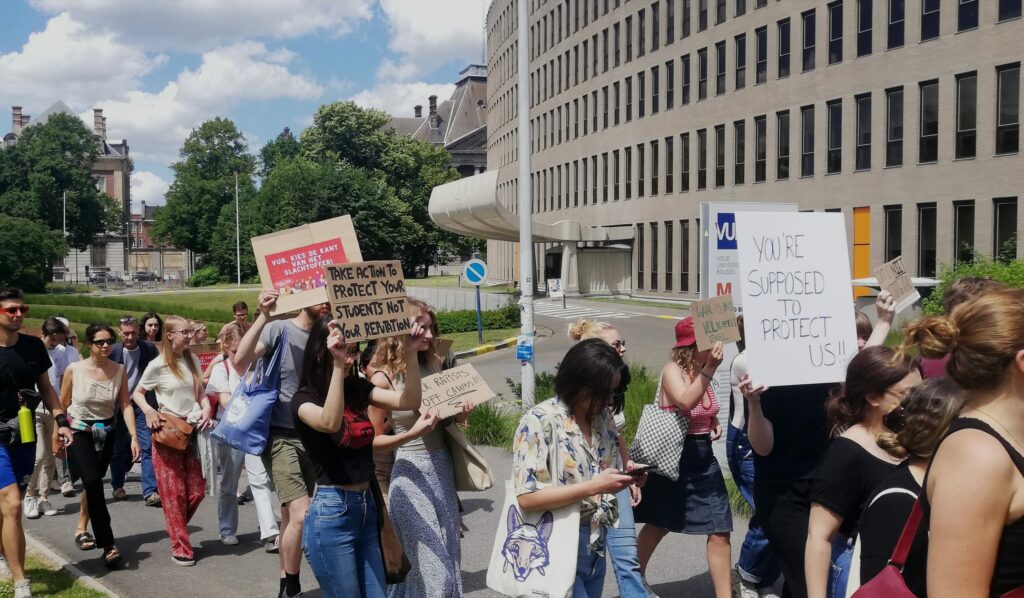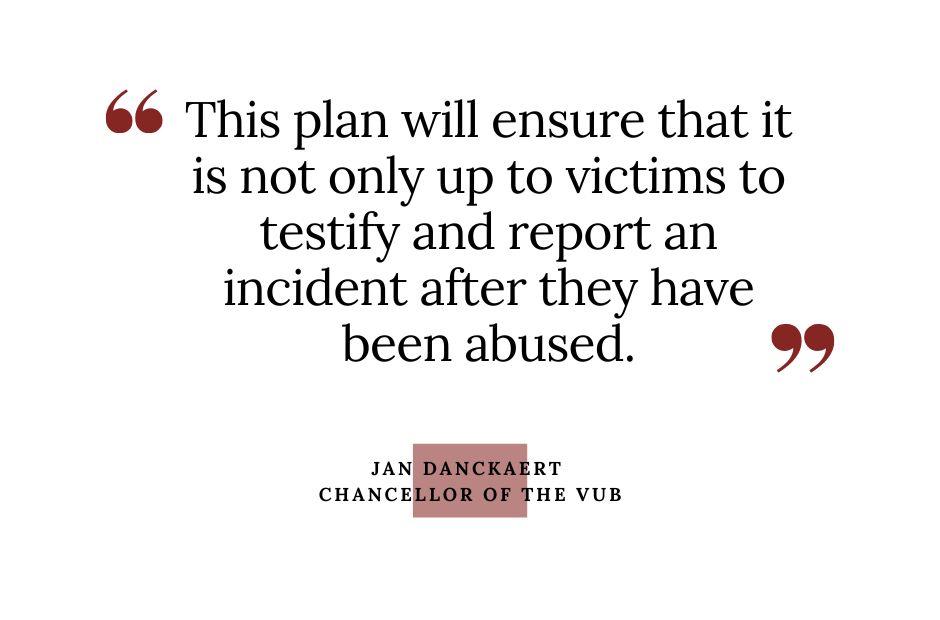Months after it faced accusations of mishandling sexual misconduct claims on its campuses, the University of Brussels (Vrije Universiteit Brussel) has now taken decisive steps in tackling the issue systematically with a new battle plan unveiled this week.
From an archaeology professor abusing his position to a student sexually harassing his peers for months on end and without repercussions, the VUB has been criticised for failing to act appropriately despite having been aware of the claims.
Earlier in the year, the university stated that it was working to improve the handling of such incidents, which has now resulted in the new concrete plan – dubbed YANA (You Are Not Alone) – being made public.
"With this plan and the communication campaign around it, we hope to create greater awareness of sexual misconduct and more actively support victims in our academic community, both among students and staff," the university's new Chancellor Jan Danckaert told The Brussels Times on Tuesday following an event marking the opening of the academic year.
Simplifying processes and better guidance
Danckaert explained that, with YANA, the VUB has its very own plan to tackle sexual harassment and violence on campus. All the measures proposed as part of the plan were discussed within four working groups, which included external experts on sexual misconduct. Students were also represented in these groups.
The plan takes a preventative approach as well as a reactive one and is built on two main pillars: firstly, maximum commitment to prevention, and secondly (if abuse occurs), better counselling of victims so that they do not feel alone.
Danckaert recognised that it was not always clear to victims how to report an incident or file a complaint within the university and externally, and drew lessons from the past.
Through four working groups, structural solutions were sought and finally brought together in a new policy on (sexual) misconduct. Some action points of this plan have already been put in place, such as an improvement of the hotline, a revision of the disciplinary procedure and clear communication about this type of behaviour.
However, it was recognised this alone isn't enough, which is why the university is also looking to better guide victims by always assigning them with just one confidant (the VUB has several bodies dealing with the fallout of such incidents, which adds to the confusion). This means victims will also only have to share their stories once.
"That person will actively guide them during further steps and also keep them better informed of further decisions."
Related News
- Brussels Government invests over €250,000 to tackle sexual harassment at night
- Brussels plan to combat violence against women lacks 'integrated political vision'
The university will also carry out bystander training to encourage people who are not victims themselves to report an incident if they witness an act of sexual misconduct or harassment. "In this way, it's not only up to victims to testify and report after they have been abused," Danckaert said.
VUB's existing hotline for this purpose has been strengthened to cope with a possible increase in reports as a result of these measures.
Global challenges
Aside from dealing with societal issues such as sexual misconduct and abuse of power, Danckaert stressed that the world is facing various other challenges from global pandemics to the climate crisis and ongoing geopolitical tensions, adding that universities must play a key role in offering answers to these problems.

The event marking the opening of the academic year, with former chancellors Caroline Pauwels and Paul de Knop honoured in the background. Credit: VUB
The university also launched a new academy — the Caroline Pauwels Academy of Critical Thinking (PACT for short) — in commemoration of the former VUB Chancellor Caroline Pauwels, whose mandate ran from 2016 to August 2022 – when she tragically passed away.
With this academy, lectures will be presented by a wide range of voices will be held for people wanting to gain insight into different perspectives in various issues, with the aim of promoting dialogue, self-reflection and self-examination.


